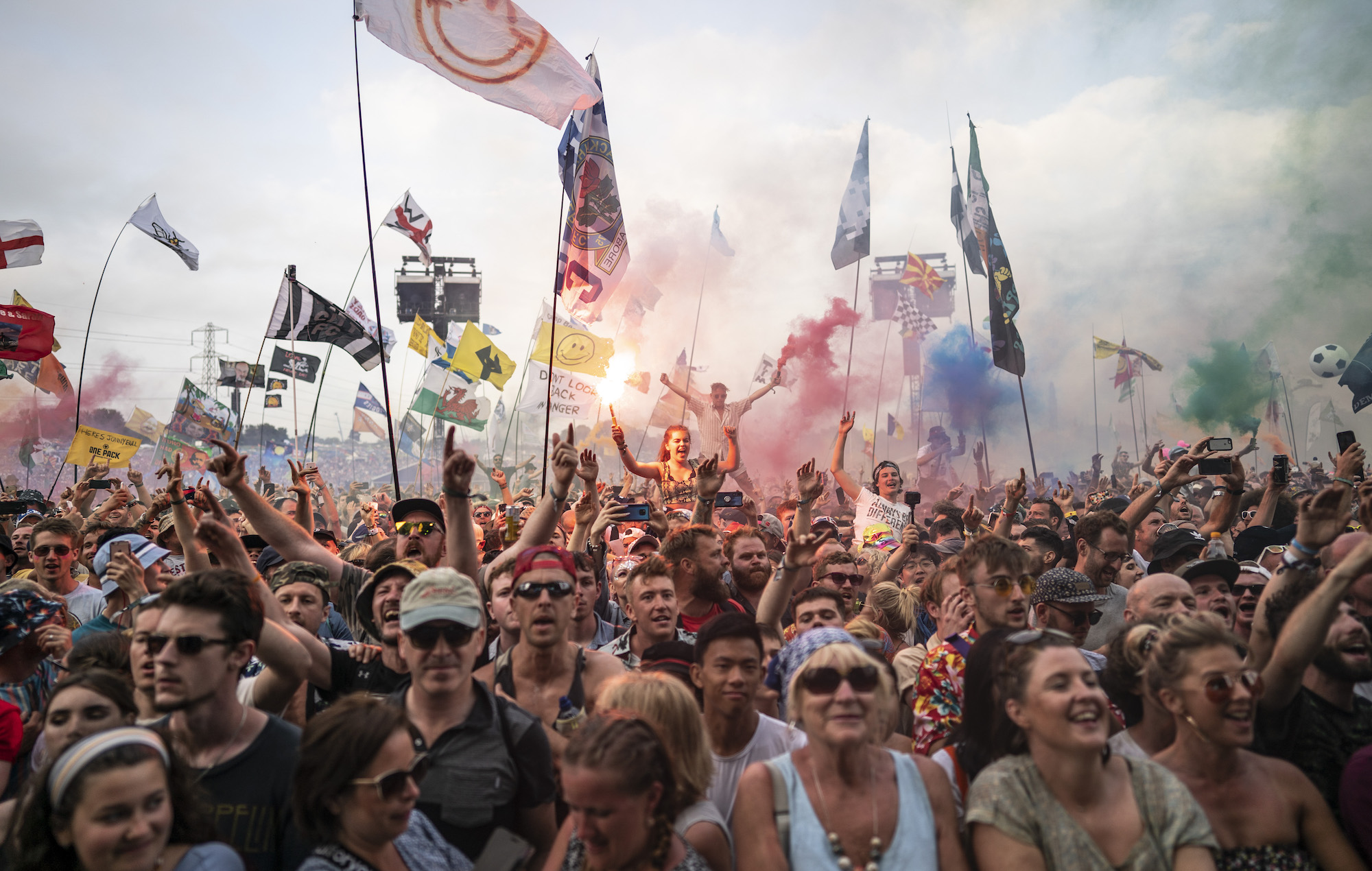
Like a tightly-packed school of fish, nearly two hundred people on bicycles weave through the narrow streets of central London on a wet and chilly Wednesday evening, ringing bells and chanting “fuck Boris!”. Turning towards Parliament Square, the chants turn to a rendition of Bob Marley’s iconic ‘Get Up, Stand Up’ as the DJ, sitting in a rickshaw, kitted out with speakers and blinking lights, turns the song up louder. Bells ring and passersby star in a mixture of delight, awe and confusion, often chanting and screaming along.
READ MORE: “We might not re-open”: on the scene at Manchester’s #WeMakeEvents march
This is a genial protest in support of the UK music scene. An hour earlier, more than a hundred people had gathered together at Hyde Park in support of Save Our Scene, a new campaign launched to protest against the UK Government’s lack of support for musicians while fundraising for Help Musicians — the only UK charity which supports musicians during the current Covid-19 crisis.
“They’ve been a lifeline to thousands of musicians over the past seven months,” Fleming tells NME. “Their help is needed more than ever before. We just want to raise as much as possible for them. 100% of what we raise goes to them which goes straight into musicians pockets which is vital at the moment. A lot of people have been out of work for a lot of time and it’s getting to the point where life is very impossible for a lot of people.”
Alan Lorrimer, who owns The Piano Works, a venue in Farringdon, London, is one of those people. It’s an egalitarian space, the in-house musicians famously taking centre stage playing songs requested by the audience, but the pandemic has hit them hard. “All of our musicians are out of work and have been out of work since March,” says Lorrimer.
He wanted to show his support, ably riding his bike alongside a crowd of mixed genders, ages, class and race brackets, all in support for a good cause. While Chancellor Rishi Sunak’s £1.57bn bail-out has been channeled towards saving venues, thousands of the workers who keep them running – now unable to work – have yet to receive the funding they need. “Hopefully, there is some change in Government policies that would allow musicians to get paid,” he says, adding that he hopes the “visibility” of the issues is the biggest after-effect of the rally.
Fleming created Save Our Scene because he was “really worried about the state of things at the moment. He adds: “With the current plan of the Government, it’s looking like we’ll lose a large portion of the industry. We just want to do everything we can to show them how much we care about it.”
“With the current plan of the Government, it’s looking like we’ll lose a large portion of the industry” – Save Our Scene’s George Fleming
Before the ride set off, the mood in the crowd was joyful. Everyone had masks with people standing an appropriate distance from one another inside their support bubbles, waiting for instructions from Fleming. At the dot of 7.10pm, as promised, Fleming set the two flag bearers off on foot with the bike riders slowly ambling behind. As the swarm of people initially stalled traffic, many drivers patiently waited as the crowd snaked its way around corners and down streets shouting themselves hoarse. Some drivers even honked in admiration, turning up the radios in the car, while many of those on mopeds drove by pumping their fists in the air in support.
The DJ kept the music going throughout, floating through genres from four-to-the-floor house, jungle, and drum ’n’ bass to sing-a-long tunes. When the beat did drop, those on the street who weren’t filming the bikers danced along while bicycle bells rang out in unison and joints were lit. For the hundreds on their bicycles, these moments felt like a form of catharsis.
“It’s amazing. I didn’t think there’d be this many people,” says Charlotte, who comes from a musical family and attends lots of gigs. Esther, a middle-aged woman who’s been attending live gigs for decades, adds. “It’s a really nice vibe: everyone coming together, to show that’s what you need to show solidarity.” Esther misses the community aspect of seeing live gigs: “I miss seeing friends, going out. Hopefully, this will raise awareness and show the government and people this is what we want. Culture is important.”
Fleming himself is surprised by the turn-out. “I put up a post on Instagram and it got shared about 400 times in less than a day,” he says. “I thought, ‘Oh, Jesus, this is going to get out of control.’ But, I thought this was the perfect number.”

Fraser, who bikes along with two friends, tells NME: “Music is in my blood. I play the drums, I’m also a composer and a DJ.” During the pandemic, he’s been staying creative to ensure he can keep himself “sane”. But he’s missing the spaces where he felt most natural. He hopes that the Government can support musicians and venues to ensure that after the pandemic, things return “back to normal, if not better.”
Scarlet, a self-described “junglist and raver” echoes Fraser, stating, “I miss everyone getting together, the vibes, the harmony. It makes people happy. It brings us so much joy and happiness.” When the group reaches Parliament Square, doing circles around it, chanting “Save Our Scene!”, parts of the crowd taper off.

Scarlet, meanwhile, dismounts. She has been playing drum’n’’bass and jungle on her speaker at the back of her bike, but now she provides entertainment for those standing around the Churchill statue, gathering like-minded souls towards herself. “I’m really happy with this turn-out,” she says. “Really amazed at how everything happened today in showing support.”
For Winnie, a singer-songwriter, it’s a relief to see so much support as part of the bike ride. “Luckily, I have a job alongside [music],” she says, “but I know a lot of people don’t. The whole system is broken. The streaming revenue is not enough to support the artist lifestyle, actually anyone’s lifestyle, unless you’re in the top one per cent. I think it’s time for the Government to step up and put some support in place like other countries have done and be aware of the impact they’re having on the future of the art sector overall.”
At the end of the evening, the police come by and ask Scarlet to turn down her music. They largely avoid getting too close, asking everyone to disperse from a distance.
Fleming still has a lot to say, loud enough for any authority figure nearby to hear: “We don’t want to do it again – but if there’s no action from the Government, I don’t see why we need to stop.” With plans in place to utilise social media to drum up support, Fleming aims to “bring as many music lovers and as many people in the industry together to show the Government how much we care about this industry and how much we want to protect it for future generations.”
Fleming isn’t a musician. He also doesn’t work in music. But that’s kind of the point. “It affects us all,” he says, re-emphasising the argument that we need a music industry to return to when this is all over: “We rely on music for our mental health. It’s something we’ve been well known for a long time and the rest of the world looks up to us for it. It’s the heartbeat of this country.”
The post Save Our Scene is a two-wheeled London protest on a mission to save UK music appeared first on NME Music News, Reviews, Videos, Galleries, Tickets and Blogs | NME.COM.






